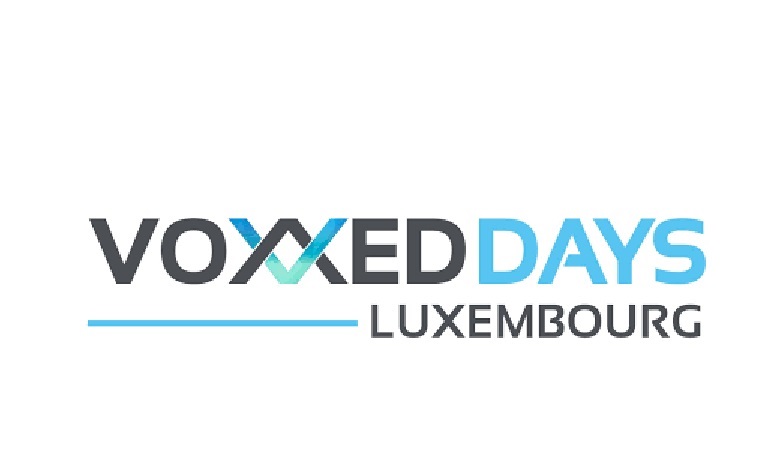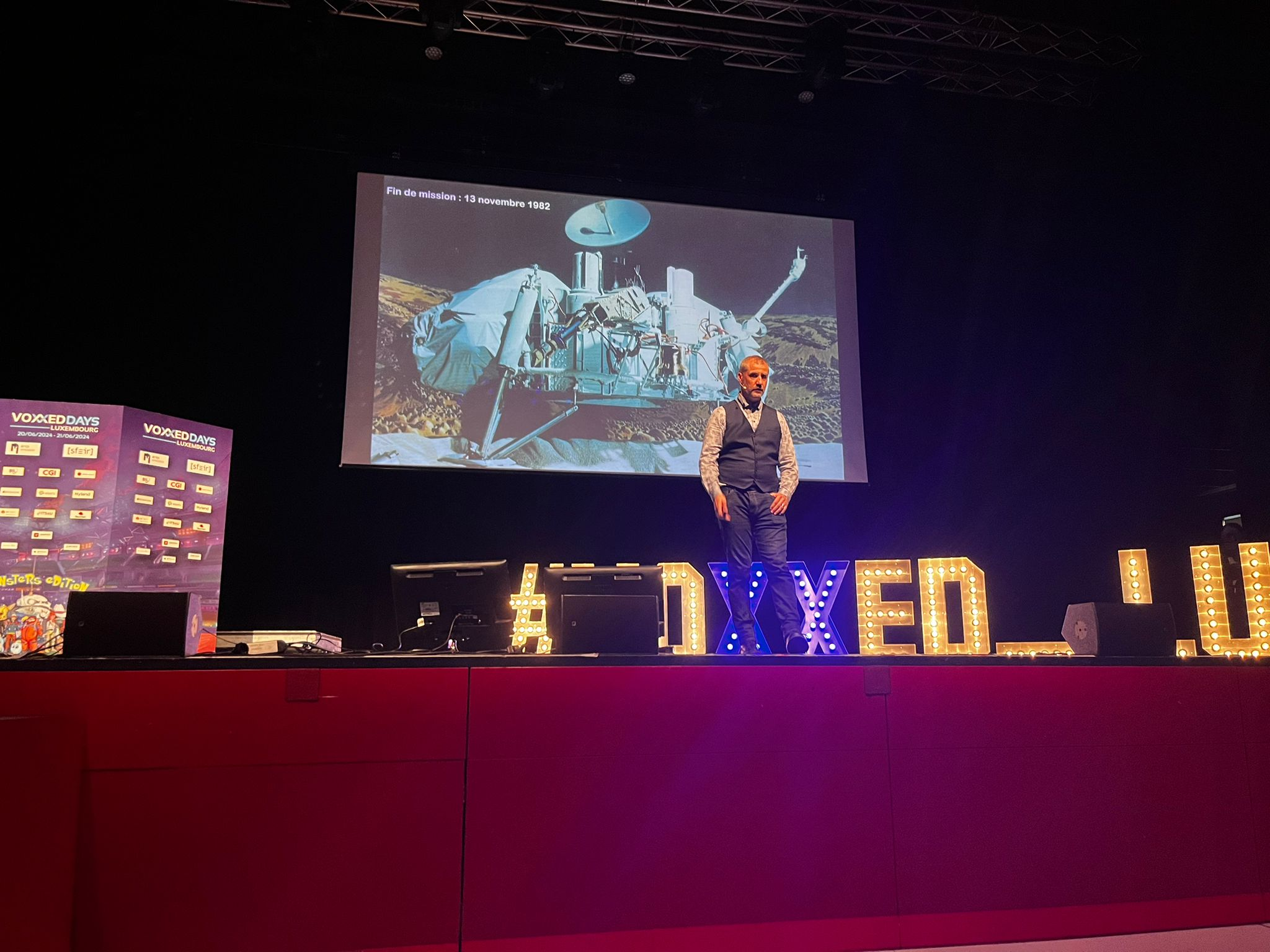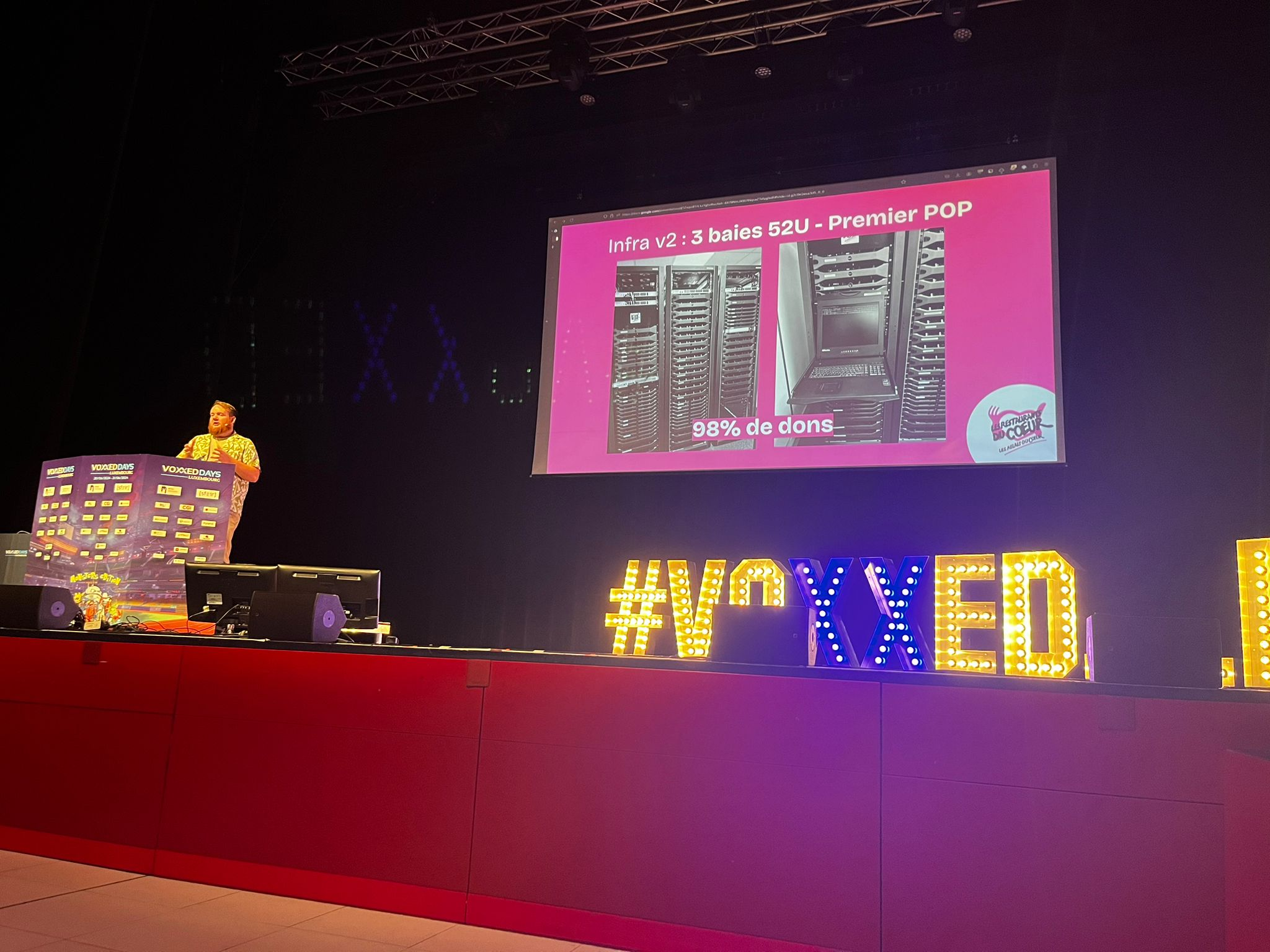This year again, Voxxed Days did not disappoint expectations. Inside this article, you will find a summary of the talks we attended as viewers and as speakers.

Voxxed Days confirms itself as an event not to be missed. The talks we were able to attend covered diverse topics that share a common thread: computer science. We traveled into space with “Les robots de l’espace” by Pierre Henriquet, understood the spectrum of diversity with “Comment intégrer au mieux une personne autiste en entreprise” by Angi Guyard, and delved into the depths of quantum physics with “God really plays dice - Introduction to Quantum Computing with Q#” by Filip Wojcieszyn.
Adelean also contributed to enriching Voxxed Days with two talks:
-“Home assistant sous surveillance”, presented by Benjamin Dauvissat and Pietro Mele
-“Développement d’un système RAG personnalisé pour une intelligence augmentée”, presented by Amine Gani and Lucian Precup
That said, here is a brief summary of the talks we were able to attend.
Voxxed begins with the exploration of space and the history of space research, which, like other sectors, has driven technological and computer advancements.
We start with MOON17, a lunar exploration project led by the Soviet Union. It serves as a prime example of how technological and computer advancements enabled humanity to take its first steps towards the moon.
However, humanity’s journey into space is not only marked by successes. There is also room for failures, which provide valuable opportunities to learn from mistakes: the technical mishap with the Viking 1 update and the calculation errors in the Mars Climate Orbiter project are prime examples. In the latter case, a communication error between different teams regarding the units of measurement used for trajectory calculations caused the spacecraft to crash. We can definitively say that Ctrl-Z does not work in space.
The CANADARM and the Astrobees represent the present state of engineering and computer advancements, the pinnacle of human technology orbiting the earth. The former allows spacecraft to dock with the ISS, while the latter are cubes of technology ready to assist astronauts in their work.

With a passionate talk, Julien Briault showed us that it is possible to do good by doing what you love, through technology. For those who don’t know them, “Restos du Coeur” is a network of French associations founded by comedian Coluche to distribute meals to people in need and difficulty.
The presentation is a real manual on how a non-profit organization can equip itself with an infrastructure capable of replacing expensive cloud providers like AWS and OVHcloud through volunteer work, donations, and above all, the dedication and skills of a few, including Julien.
All the technical solutions implemented to ensure an efficient infrastructure are open-source: from Openstack to Kubernetes, including Maas and Packer. Security is also a priority: the use of Bastion Teleport seems to go in this direction, ensuring a certain robustness for the infrastructure. Everything is done with care to avoid waste. In fact, Julien reminds us that every euro saved equates to a meal donated.
The talk concludes with an invitation to participate in the “Restos du Coeur” mission.

Every day, we use LLMs to assist us in our development activities: creating or understanding code, generating documentation, and translating code from one language to another.
Codiumate is a plugin compatible with JetBrains IDEs and Visual Studio, which allows you to do all this and more. By leveraging ease of use and automation, it enables the creation of unit tests. Powered by GPT-3.5 for the free version and GPT-4 for the paid version, Codiumate works with most programming languages and testing frameworks.
A lesson on physical well-being at work and how to maintain it. A warning against the sedentary nature of our jobs, which forces us into poor postures that can cause lasting damage.
How can we avoid (or limit) all of this? Here are some practical tips that were offered:

Between mathematics, computer science, and quantum physics, this talk provided an excellent introduction to quantum programming.
Quantum programming is based on the foundations of quantum mechanics:
Superposition: the ability of two states to coexist simultaneously.
Entanglement: the phenomenon describing the interaction and correlation between two bodies, despite distance, exceeding the speed of light limits.
Quantum interference: derived from the dual nature of matter.
Qubits, the quantum computing counterparts of classical bits, adhere to each of these rules. They can simultaneously hold a value between 0 and 1, possess the ability to be quantumly correlated, which is crucial for creating cryptographic keys (E91), and interact quantumly akin to waves. These characteristics necessitate rethinking logical circuits, which no longer use classical gates like OR, NOT, AND, etc., but instead employ gates like H (Hadamard) and X (SNOT) that manipulate qubits through operations akin to vectors and matrices.
In addition to the theoretical aspects, there was also emphasis on the practical side: Q# is one of the pioneering quantum programming languages. Created by Microsoft, it allows for the practical application of quantum programming principles. While it may not currently be one of the most widely used languages, we believe it has the potential to become more prominent in the future.

Autism is a complex spectrum characterized by a diversity of experiences and challenges for each individual. During this talk, Angi explored the different facets of autism, highlighting its distinctive characteristics and essential integration strategies to foster appropriate understanding and support.
She discussed the neurological differences between neurotypical and neuroatypical individuals, emphasizing that autism is not necessarily a disability but can influence adaptation in various contexts. Angi also covered the importance of integrating autistic individuals into the workplace, focusing on managing greetings and physical contact sensitively. She delved into adapting to repetitive behaviors, the necessity of clear and explicit communication, and the management of routines to minimize stress. Finally, she addressed overstimulation and offered strategies to mitigate its effects, underscoring the importance of recognizing and respecting the diversity within the autism spectrum to create more supportive environments.
The lesson is learned: if we make the work environment better for people on the autism spectrum, we will make the work environment better for everyone.
In our first presentation titled “Home Assistant sous surveillance”, we tackled the crucial question “Who watches the watchman?” or, for Latin scholars, “Quis custodiet ipsos custodes?". Indeed, in an interconnected world, we navigate a sea of data, where even our domestic environments can collect information.
Through the integration of Home Assistant with Elasticsearch, we were able to showcase not only what data is collected but also how this data can be leveraged using Elasticsearch’s functionalities.These include anomaly detection to identify unusual behaviors in IoT devices, real-time alerting to promptly respond to critical situations, creation of interactive dashboards for clear visualization of device status and performance, and predictions based on historical data to optimize the usage and maintenance of smart home appliances.
Our second presentation, titled “Développement d’un système RAG personnalisé pour une intelligence augmentée”, is a journey into the heart of the technology revolutionizing search engines: RAG. By providing context to the LLM through a search engine acting as a retriever, it can respond to us in a personalized manner, overcoming issues related to limited knowledge and hallucinations.
This presentation covers a range of crucial topics for RAG systems: from question answering to RAG implementation, from vectorization techniques to chunking strategies, ending with a detailed explanation of modern query rewriting techniques that enhance LLM comprehension.
Overall, this Voxxed Days was an exceptional event, thanks to the diverse range of topics covered. From space exploration to quantum computing, and from AI-driven testing to the integration of autistic individuals in the workplace, the talks provided valuable insights and knowledge. The variety of subjects not only kept the event engaging but also highlighted the multifaceted nature of computer science and technology. It was a truly enriching experience, and we look forward to seeing what next year’s Voxxed Days will bring.